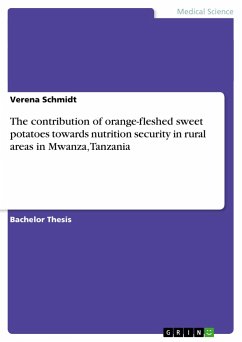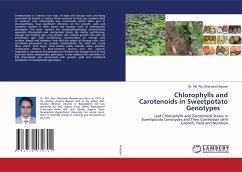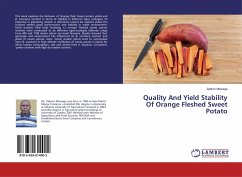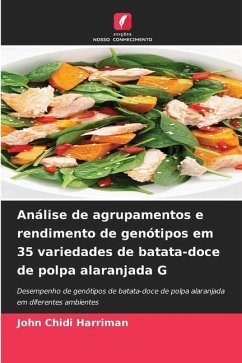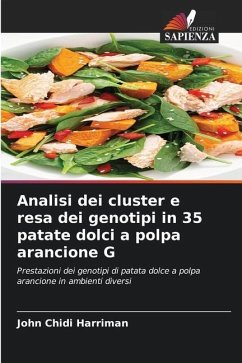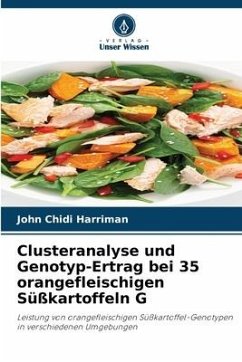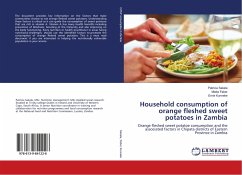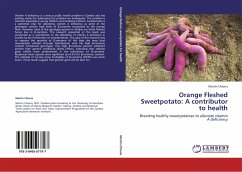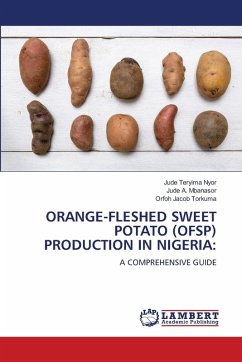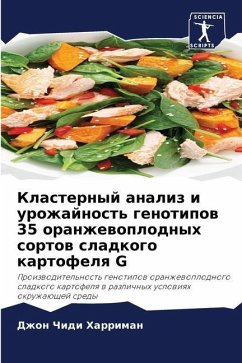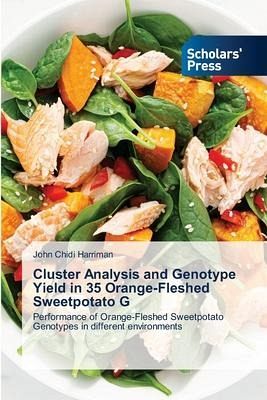
Cluster Analysis and Genotype Yield in 35 Orange-Fleshed Sweetpotato G
Performance of Orange-Fleshed Sweetpotato Genotypes in different environments
Versandkostenfrei!
Versandfertig in 6-10 Tagen
34,99 €
inkl. MwSt.

PAYBACK Punkte
17 °P sammeln!
Orange-fleshed sweetpotato (OFSP) is a biofortified food of Beta carotene that fights vitamin A deficiency in developing countries. The success to select and identify the superior genotype for high root yield is limited by Genotype and Environment (G × E) interactions. A proper understanding of the effects of GxE on variety evaluation and genotype recommendations is vital. The study was conducted to estimate the magnitude of genotype × environment interaction (G × E) and to select stable and high yielding OFSP genotypes for fresh root yield in three locations. The 35 OFSP genotypes were eva...
Orange-fleshed sweetpotato (OFSP) is a biofortified food of Beta carotene that fights vitamin A deficiency in developing countries. The success to select and identify the superior genotype for high root yield is limited by Genotype and Environment (G × E) interactions. A proper understanding of the effects of GxE on variety evaluation and genotype recommendations is vital. The study was conducted to estimate the magnitude of genotype × environment interaction (G × E) and to select stable and high yielding OFSP genotypes for fresh root yield in three locations. The 35 OFSP genotypes were evaluated across 3 environments using a randomized complete block design (RCBD) with three replications. The AMMI model analysis indicated that genotype (G) and environment (E) had significant effects on root yield. Among the locations, E1 was the most productive site in distinguishing genotypes and the most representative environment. The cluster analysis successfully grouped the 35 genotypes into 7 clusters with distinct promising features. Clusters II and IV were recommended for high root yield performance.



